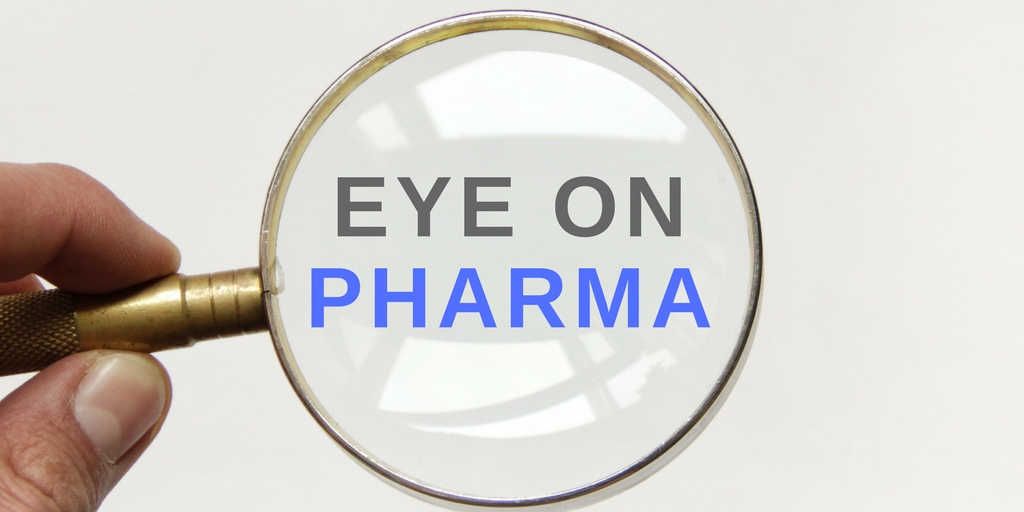
- Bone Health
- Immunology
- Hematology
- Respiratory
- Dermatology
- Diabetes
- Gastroenterology
- Neurology
- Oncology
- Ophthalmology
- Rare Disease
- Rheumatology
Eye on Pharma: Another CRL for Alvotech; Cimerli’s Growing Market Share; BBCIC Awarded Grant
Alvotech received a complete response letter (CRL) for its ustekinumab biosimilar; Formycon’s Cimerli, a ranibizumab biosimilar, achieved 25% market share in the United States; and the FDA awarded a researach grant to the Biologics & Biosimilars Collective Intelligence Consortium (BBCIC).

Alvotech received a complete response letter (CRL) for its ustekinumab biosimilar; Formycon’s Cimerli, a ranibizumab biosimilar, achieved 25% market share in the United States; and the FDA awarded a research grant to the Biologics & Biosimilars Collective Intelligence Consortium (BBCIC).
Alvotech Receives CRL
For the third time in 2023, Alvotech received a CRL, this time for an ustekinumab product (AVT04). The news comes after Alvotech received 2 CRLs for its adalimumab biosimilar candidate.
The company said the letter was expected given the issues cited in the previous ones. All 3 CRLs have concerned the FDA inspection of Alvotech’s Reykjavik, Iceland, manufacturing facility. The FDA did not raise any issues with the adalimumab or ustekinumab products themselves nor the data packages submitted as part of the biologics license applications (BLAs).
Similar to the response to the CRLs for the adalimumab biosimilar, Alvotech said that it plans to resubmit and will address the FDA’s concerns. The resubmission will likely trigger a 6-month review period and a new Biosimilar User Fee Act goal date, pushing back the company’s original anticipated date for approval.
“AVT04 has recently been approved in Japan, and other marketing applications for AVT04 are currently awaiting approval in other major markets. Based on our latest interactions with the FDA, we are currently expecting that the agency will reinspect our facility in the beginning of next year. We look forward to being able to bring AVT04 to US patients, pending a satisfactory inspection and BLA approval, no later than in February 2025, in accordance with our license entry date agreement,” said Robert Wessman, chairman and CEO of Alvotech.
Cimerli Gains 25% of Ranibizumab Market
Formycon and its partner Coherus Biosciences announced that sales of Cimerli (ranibizumab-eqrn) have surpassed 100,000 doses since its October 2022 launch and the product has achieved 25% market share.
Cimerli was the first ranibizumab to receive FDA approval, and it was the first ophthalmology biosimilar to receive an interchangeability designation. The biosimilar references Lucentis and is used to treat age-related macular degeneration, macular edema, and diabetic retinopathy.
“This is a great achievement and underlines again that biosimilars are an important treatment option for severe retinal diseases,” commented Stefan Glombitza, PharmD, CEO of Formycon AG.
FDA Awards Grant to BBCIC
The FDA awarded the BBCIC a $1.4 million grant to enable biosimilar research. This grant will fund a new BBCIC study that will identify opportunities and challenges in using foreign real-world data to accelerate the approval process for biosimilars.
The Academy of Managed Care Pharmacy established the BBCIC in 2015 to address needs for more evidence for novel biologics, biosimilars, and other related products.
The study will assess real-world data from the United States, Italy, and Denmark to create recommendations for the FDA on how to address issues regarding the use of international data in its regulatory decision-making process for biosimilars. The primary investigators are 2 professors: 1 from the University of Verona and 1 from the University of Southern Denmark.
“The current approval process for biosimilar products is complex, delaying patients’ access to cost-effective therapies," said Cate Lockhart, executive director of the BBCIC. "Using real-world data from foreign countries could help improve the FDA’s work and ultimately help patients receive access to approved therapies in a timelier manner. We’re proud that the FDA has awarded BBCIC this grant to fund our study, which aligns with the FDA’s mission to make safe and effective drugs available to patients nationwide."
Newsletter
Where clinical, regulatory, and economic perspectives converge—sign up for Center for Biosimilars® emails to get expert insights on emerging treatment paradigms, biosimilar policy, and real-world outcomes that shape patient care.
259 Prospect Plains Rd, Bldg H,
Cranbury, NJ 08512
All rights reserved.